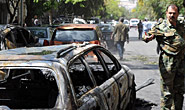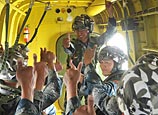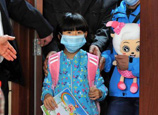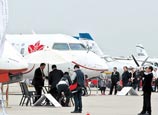
Edited and Translated by Liang Jun, People's Daily Online
Monday’s terrorist bombings in Boston is the major terrorist attack the United States has suffered since September 11, 2001. Although the scale and losses is not on par with the 9/11, it happened at the sensitive moment when the U.S. is accelerating withdrawal from Afghanistan and continuously concentrating anti-terrorism front, which will probably has influence on the rhythm and pace of the adjustment of the counter-terrorism strategy in Obama’s second term.
Blasts in Boston embodies the increasingly serious terrorist threats within the United States. Since Obama took office in 2009, although the country faces reduced terrorist threats from abroad, but at home, it faces increasing individual terrorist threats, extremism phenomenon and penetration of al Qaeda and its affiliated groups. Some American Muslims and white Americans even came back home to engage in terrorist activities after receiving training overseas.
The attempt by al Qaeda to bomb Northwest Airlines flight 253 on Christmas Day, 2009; the Fort Hood shooting that took place on November 5, 2009 and explosives found in U.S.-bound parcels from Yemen on October 29, 2010 all reveal the trend.
Boston’s blasts also shows that the U.S. anti-terrorist mission is far from ending. Simply shifting anti-terrorism focus from abroad to home cannot effectively solve terrorist threats facing the country. After the U.S. killed Bin Laden in 2011, it put more emphasis on domestic counter-terrorism moves and concentrated international anti-terrorism front. While Boston’s bombings tells us that without comprehensive measures balancing internal and external situation, it will be very difficult for the U.S. to solve terrorism issues.
Boston’s bombings urges Americans from all walks of life to re-think the strategy of Obama’s administration. Currently, counter-terrorism’s role is becoming less important in the U.S. security and overall diplomacy. Its anti-terrorism efforts focus on enhancing homeland security and safeguarding own interests overseas. The U.S. should reflect on using what measure to enhance its national security and promote international cooperation in the fight against terrorism.
Fu Xiaoqiang, the author, is a researcher from the China Institute of Contemporary International Relations.
Read the Chinese version: 中国专家:反恐需内外兼顾
, source: People's Daily
We recommend:

World Pillow Fight Day marked in Washington

Multiple mortar shells hit Damascus

Prince William, Kate love sports

Aurora shines in Estonia

Floods kill 46 in Argentina

The world in photos
















 Beijing's first H7N9 patient discharged
Beijing's first H7N9 patient discharged


![]()
